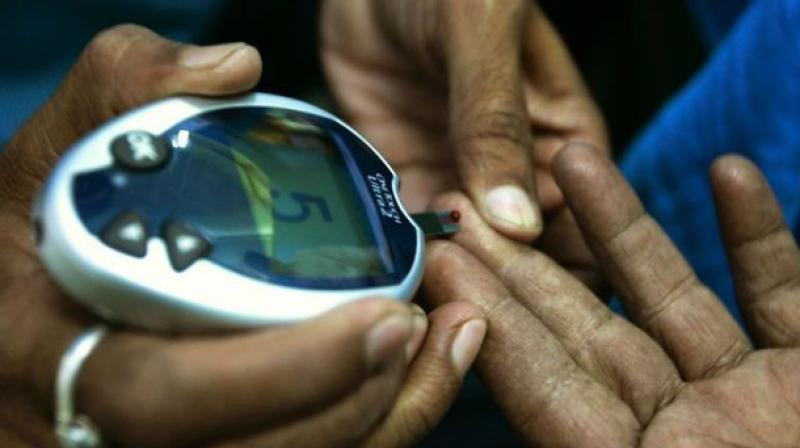Burden of non-communicable diseases high in Tamil Nadu
The report disclosed that initiation into alcohol in youngsters was found to be right from the age of 21, as per the NCD surveillance.

Chennai: Tamil Nadu has a growing burden of non-communicable diseases (NCDs) such as stroke, Type 2 diabetes, cancer and heart diseases.
A primary reason for this is 99 per cent of Tamil Nadu people consume less than five servings of fruits and vegetables daily and 66 per cent of the population reported low physical activity as per latest non-communicable disease surveillance report.
As per a recent report published in Lancet, an estimated 72·3 per cent (39·5 million) of all deaths in 2016 all over the world were from NCDs, mainly due to nutritional inadequacy.
The report disclosed that initiation into alcohol in youngsters was found to be right from the age of 21, as per the NCD surveillance. Medicos say that various risk factors such as consumption of alcohol among youngsters, pre-hypertension and poor dietary habits need to be controlled to curb the growing rate of NCDs in Tamil Nadu.
"Sedentary lifestyle leads to alteration in stress levels that can initiate risk factors for non-communicable diseases like consumption of alcohol, smoking and can further cause hypertension, anxiety, heart diseases, osteoporosis and other cardiac disorders," said psychiatrist Dr Vivian Kapil.
Of the patients who visit government hospitals in the city, around 70 per cent cases are of non-communicable diseases, say hospital authorities.
"NCDs are constantly rising among the people in Tamil Nadu and every person visiting the hospital complains of at least one such disease. Multiple issues of NCDs are being witnessed in youngsters who take to alcohol, tobacco and smoking, which contribute to a major proportion of non-communicable diseases," said Dr. P. Vasanthamani, Dean, Kilpauk Medical College.
As the non-communicable disease surveillance report says that only one per cent of population consumed five or more servings of fruits and vegetables per day, whereas junk food items were consumed daily by five per cent of the population.
"The burden of NCDs has increased due to a shift to urban lifestyle that involves more carbohydrate intake and low consumption of fruits and vegetables. The commercialisation of food materials to make it appealing for consumers has added flavours to food, but has taken away the nutrients," said dietician Dharini Krishnan.
She adds that online eateries serve food that lacks proteins and vitamins, causing diseases such as polycystic ovarian syndrome in women, diabetes, hypertension and a wide range of cardiac disorders in youngsters.
Doctors suggest that various measures such as intake of diet rich in anti-oxidants like fruits, vegetables and dark chocolate need to be adopted to combat stress and reduce the incidence of NCD. Salad should be preferred if eating from online food stores and obesity can be controlled by taking to high level of physical activity against the current percentage of 4 per cent.

